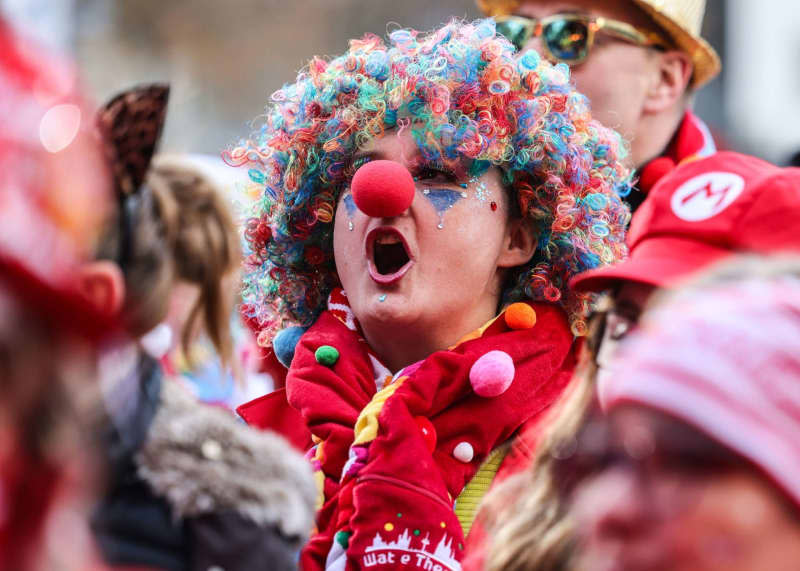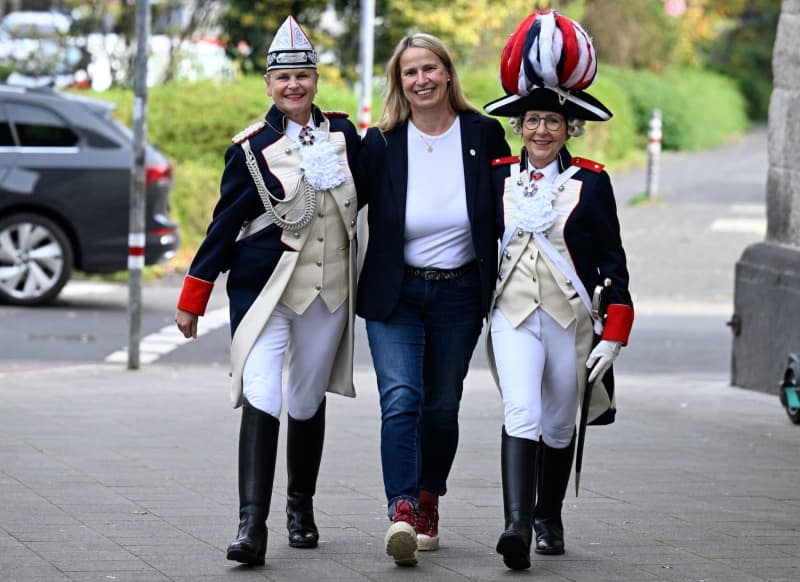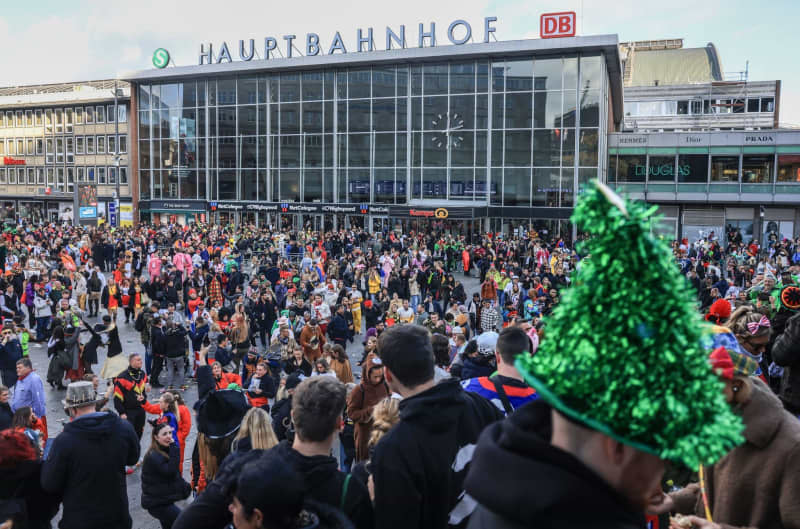Women want a bigger role in German Carnival beyond as mere decoration

The western German city of Cologne, a Catholic stronghold, has a celebrated Carnival tradition priding itself on being open to all. But as is still often the case, it's the men pulling the strings - both on and off stage.
Carnival season is a colourful, playful time in some German regions, kicking off in November. Wherever it is celebrated, it culminates in a week of rituals, parades and street parties the week before Lent, usually during February or early March.
Historically, Carnival also includes an element of political commentary and critique and an outlet for dissent that continues to take many forms, from costumes and speeches to the design of Carnival floats.
It is traditionally celebrated in Catholic parts of Germany and Cologne prides itself on being the country's Carnival stronghold, putting up one of the largest street festivals in Europe each year.
During the final week of festivities, the city comes to a standstill as carnivalists take over and party for days on end, dressed up in about every kind of costume imaginable (an absolute must).
Carnival involves a reversal of everyday rules and norms, and on the first day of the final week, women traditionally storm the city hall and symbolically take over by cutting the men's ties.
While once a gesture of empowerment, nowadays the ritual above all sheds light on the fact that it's still mostly men who are pulling the strings - both in the real world and during Carnival.
The stage shows, balls and parades through the city take a good deal of organizing, which is why Carnival tradition also involves committees appointed to coordinate the weeks of activity.
Most prominently perhaps, the council of eleven, or "Elferat," a committee of fools, plays a key role in planning the dances, meetings and processions.
A tradition that dates back to the French revolution, the committee is often peopled by men, clad in clownish gold hats.
There are also guard corps, clubs that play a big role in the street carnival, making up large portions of the parades. They wear uniforms that play on military customs and oaths of the past.
Some traditional corps in Cologne ban women from becoming members to this day.
But change is coming to the hallowed tradition, starting with the First Coeln Ladies' Guard, one of seven women's societies and the only one in which uniforms are worn.
The founding of the women's guard arose in frustration when some women had tried to join the traditional Rote Funken corps without success.
Some criticism followed the women establishing their own guard in 2014, says President Barbara Brüninghaus. "They looked very closely at what we were doing, especially in the first phase, to see whether it was okay and in keeping with tradition and customs."
That left some women feeling like they were on a platter, she said.
Now, the ladies' guard is firmly established in the Carnival landscape and later this year will take part in the Shrove Monday parade - the biggest Carnival parade - for the second time.
The Ladies' Guard also organizes numerous events and performances the same as the men's guards, only with the roles reversed.
That means the women dress up as the uniformed soldiers and, rather than having a woman majorette who dances and twirls a baton - known as Funkemariechen in German - a man performs the role instead.
In fact, that is a return to older Carnival traditions in which men acted as dancing majorettes, a habit that only changed under the Nazis, who opposed men dressing as women.
The Cologne Carnival Festival Committee - a 200-year-old umbrella organization of Cologne's carnival societies - says it supports the women's societies.
"They play a major and very positive role. And of course they are also role models," says Tanja Holthaus, spokeswoman for the committee. In most societies, women are very welcome and also very active, she says.
However, most leading positions are still held by men, she admits.
"We get feedback from many societies that there are a lot of very committed women, but only very few want to be at the top and take on representative positions," says Holthaus.
That is something her committee seeks to address and encourage women "so that they dare to come to the front ranks and be where the carnival is decided."
Brüninghaus, president of the women's guard, confirms the importance of this approach.
"The festival committee also urges women to be active in the carnival," she says. But the onus is also on women who must seek to get involved, she adds. "I think we women have to have the commitment and courage to show ourselves and be visible."
Sociologist Yvonne Niekrenz sees time and money as possible reasons for women's reluctance to commit fully to the hallowed tradition.
Regular Carnival meetings in the run-up to the riotous week before Ash Wednesday require many additional hours of preparation.
"You have to reconcile this with your job and, of course, with care work, where women still play a more central role than men," says Niekrenz, who has written a PhD thesis on street carnival in the Rhineland, including Cologne.
The same is true of participation in local politics, she adds.
Every Carnival season in Cologne, a new triumvirate of prince, farmer and maiden is chosen to officially reign over the festivities and the foolish population - still a wholly male bastion.
The roles are taken on by three people each year, who are granted the titles after paying large sums of money for the privileges.
The prince is the highest representative of the festivities, leading the main parades throughout the week.
Traditionally, the maiden is portrayed by a man dressed as a woman. While the role has been played by women twice, in 1938 and 1939, the Nazis stamped that out, too.
Nevertheless, the festival committee says its rules don't decree the gender of the triumvirate members, so societies could also send women to the selection process.
But tradition still is hugely influential, says Niekrenz. "If you grow up with the idea that the triumvirate is made up of men, then it's difficult to question that."



